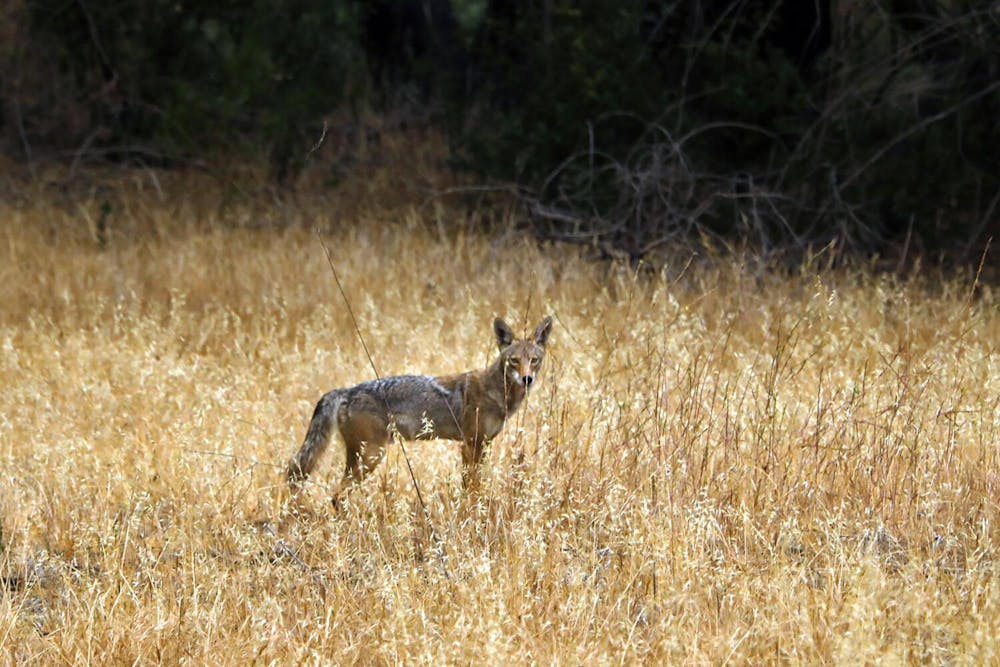A recent social media post claimed a coyote has been sighted south of the IU Bloomington campus.
Virgil Sauder, director of Bloomington Animal Care and Control, said sightings like this are typical for any city. The coyote could be a young adult moving to a different territory or could be drawn to an area with shelter or food. Coyotes also become more active during winter.
But how should residents with pets keep their animals safe?
Sauder said while coyotes pose little risk to humans or larger animals, he advises residents to supervise while their pets are outside.
“The best thing to do with pets is to be with them,” Sauder said.
He said residents should be especially aware during dawn and dusk, and that owners of outdoor cats should bring them inside.
Sauder said coyotes are naturally cautious and typically avoid humans. If residents encounter them, Sauder recommends scaring them off.
“What people can do is bang pots and pans, yell at them, wave their hands in the air, things to kind of frighten them away,” Sauder said. “That's actually a good thing to do, because it kind of keeps them wary and away from people.”
To avoid attracting coyotes to an area, Sauder said he recommends residents be aware of what they leave outside. Coyotes will prey on rats or mice, meaning they may be drawn to areas with large amounts of garbage. They may also visit areas where residents leave food for outdoor pets.
Sauder said while Animal Care and Control does not intervene when coyotes are behaving normally, residents should report coyotes with unusual behavior or injury.
“If you encounter injured wildlife or coyotes that are behaving overly friendly or not as wary with people, we want to hear about that too,” Sauder said. “A coyote that loses its fear is going to be more dangerous.”
Residents can find more information about coyotes on the Bloomington Animal Care and Control website or online through the Indiana Department of Natural Resources. To request assistance with an animal-related emergency within city limits, residents can contact Animal Control at (812) 339-1444.



